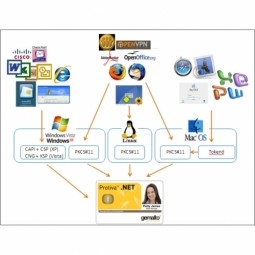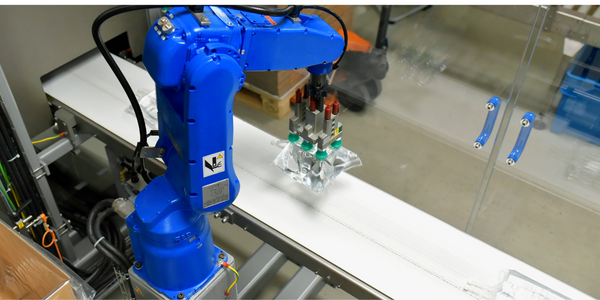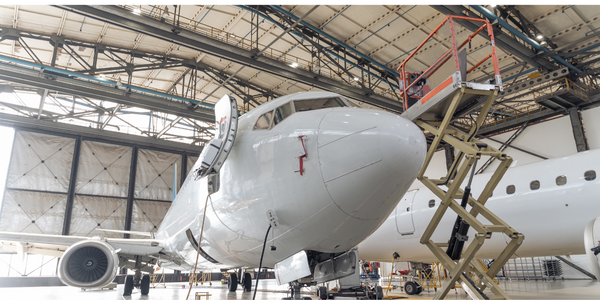公司规模
Large Corporate
地区
- Europe
国家
- United Kingdom
产品
- DDN’s GS7K®
- WOS object storage
技术栈
- VMware HorizonView
- NFS – ESXi Data Store
- iSCSI – ESXi and Windows servers
实施规模
- Enterprise-wide Deployment
影响指标
- Productivity Improvements
- Digital Expertise
技术
- 基础设施即服务 (IaaS) - 云存储服务
适用行业
- 生命科学
适用功能
- 产品研发
用例
- 预测性维护
- 边缘计算与边缘智能
服务
- 云规划/设计/实施服务
- 数据科学服务
关于客户
伦敦癌症研究所是世界上最具影响力的癌症研究机构之一,其杰出成就可追溯到 100 多年前。癌症研究所 (ICR) 由首席执行官保罗·沃克曼教授领导,他是癌症药物研发方面的专家。它在识别癌症基因、发现癌症药物和开发精准放射疗法方面处于世界领先地位。与医院合作伙伴皇家马斯登 NHS 基金会信托一起,这对机构被评为全球四大癌症研究和治疗中心之一。由于有 140 个研究团队专注于推动动态自适应疗法的未来,ICR 必须勤勉地调整支持服务。
挑战
伦敦癌症研究所 (ICR) 是癌症基因识别、抗癌药物研发和精准放射治疗领域的全球领导者,它需要一个单一的中央存储基础设施,使用户能够收集和分析所有类型的活跃研究数据。研究数据服务 (RDS) 必须足够广泛,以支持八个研究部门和所有类型的生物、化学和物理相关数据。它需要能够从不同的科学仪器和下一代测序仪中提取大量数据,同时连接到各种研究服务,从各种笔记本电脑和台式机到具有 CPU 和 GPU 的高性能超级计算机。
解决方案
ICR 着手部署可扩展的解决方案,以托管广泛的科学和临床数据。他们选择了 DDN 的 GS7K® 作为站点之间同步镜像的扩展集群。此外,还安装了 4PB 的 WOS 对象存储,以提供使用 Global ObjectAssure® (GOA) 高级擦除编码保护的层。这些站点通过私有 10Gbps 网络链路连接,并可选择根据需要增加带宽。该基础设施具有极强的弹性,可在三个地理上分开的位置进行复制和擦除编码,快照。新的 RDS 服务旨在具有可扩展性、经济高效性和高弹性 - 基础设施在前端性能和后端容量方面都可扩展,可以轻松增加以满足不断变化的需求。
运营影响
数量效益

Case Study missing?
Start adding your own!
Register with your work email and create a new case study profile for your business.
相关案例.

Case Study
Corporate Identity Solution Adds Convenience to Beckman Coulter
Beckman Coulter wanted to implement a single factor solution for physical and remote logical access to corporate network. Bechman Coulter's users were carrying smart card badges for doors, but also needed a one-time password token to access to our corporate network when they were not in the office. They wanted to simplify the process.

Case Study
Embracing Business Success in Real Time
· Increase control over growing Big Data to improve business decisions · Manage data for 28,000 biotechnology stockkeeping units in the fields of microbiology, molecular biology, animal cell cultures, plant tissue cultures, and lab ware for laboratory chemicals · Accelerate report generation and analysis with real-time data

Case Study
Flow Robotics: Scaling Up Production and Accelerating Product Development with IoT
Flow Robotics, a Danish manufacturer, developed flowbot™ ONE pipetting robots to alleviate the strain on bioanalysts in life-science laboratories and hospitals across Europe. These robots were designed to automate part of the testing process, speeding up the time it takes to produce results and reducing pressure on staff. However, the company faced challenges in scaling up production and accelerating product development. High workloads and physically challenging conditions have long been an issue for laboratory professionals. Flow Robotics estimates that around half of medical lab technicians carry out the same arm movements for at least a quarter of their working day. The American Society for Clinical Pathology reported that 85% of laboratory professionals feel burnt out; 36% struggle with inadequate staffing; and 32% face a heavy workload and pressure to complete all testing on time.
Case Study
Material Intelligence at Ethicon: Sustaining Medical Device Manufacturability and Improving Patient Care
Ethicon, a world-class medical devices company, faced several challenges in its operations. The rapid selection of manufacturing materials compliant in global markets was critical to assure patients, practitioners, and purchasing organizations of the biocompatibility of their medical devices. Ensuring supply chain continuity and minimizing risks of obsolescence for medical devices due to regulatory changes were also crucial in meeting Ethicon’s ongoing commitment to maintaining patient care. Furthermore, the engineers at Ethicon were developing the next generation of medical devices and needed to access historical material data to accelerate new product development. The process of centralizing and digitalizing its materials information was a significant challenge that Ethicon needed to overcome.

Case Study
Revolutionizing Aerospace Industry with 3D Printing: A 63% Lighter Titanium Part
GE Aviation, a renowned name in the aerospace industry, recognized the potential of 3D printing technology in transforming the sector. The primary challenge was to reduce the weight of the aerospace parts, which would directly impact the fuel costs. A lighter airplane would mean lower fuel consumption, leading to cost savings and a smaller carbon footprint. However, achieving this weight reduction without compromising the strength and functionality of the parts was a significant challenge. Traditional manufacturing methods were not able to provide the desired weight reduction while maintaining the required stiffness and strength of the parts. The challenge was to find a solution that could create strong, light, and functional aerospace parts.
Case Study
IWT's Transformation: Customizing with Efficiency in IoT
IWT, a company specializing in the design, manufacture, and installation of washing systems for the life sciences and pharmaceutical industries, faced a significant challenge in managing its wide product portfolio. The company manufactures 45 different models, 60% of which are customized to some degree. This high level of customization, combined with limited production quantities, necessitated a controlled process for managing the release of engineering changes. The goal was to achieve efficiency, reduce process time, and better coordinate production throughout the organization. The need for strict compliance in heavily regulated industries further complicated the situation. IWT's existing PLM journey with Dassault Systèmes’ SOLIDWORKS for 3D CAD and Enovia for managing CAD data and Bills of Materials (BOMs) was proving inadequate. The system had limited part classification, no workflow, and no tool to ensure data consistency. The management of non-CAD documents was also a challenge, with information often difficult to find and access.







